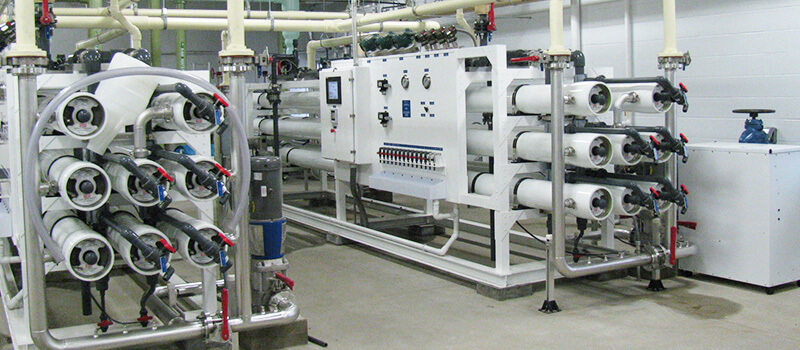Water Systems

Water Systems: Nurturing Sustainability for a Greener Future
Water systems are at the heart of our daily lives, impacting everything from domestic use to environmental conservation. In this article, we will explore various facets of water systems, emphasizing practices that not only ensure efficient water management but also prioritize environmental sustainability and minimize energy consumption. Our commitment extends beyond functional water systems to include responsible and eco-friendly solutions that contribute to a more sustainable and harmonious world.
1. Domestic Water Systems
Efficient Water Use in Homes: Domestic water systems are crucial for everyday activities. We will explore strategies for optimizing water usage within homes, incorporating water-efficient fixtures, and promoting responsible consumption to minimize environmental impact.
Smart Technologies for Home Water Management: Integrating smart technologies, such as sensor-activated faucets and water monitoring systems, will be highlighted to showcase how innovation can be harnessed for eco-friendly domestic water systems.
2. Wastewater Systems
Treatment for Reuse and Environmental Protection: Wastewater systems play a pivotal role in environmental protection. This section will discuss advanced wastewater treatment methods that not only ensure environmental compliance but also explore opportunities for treated wastewater reuse.
Eco-Friendly Disposal Practices: Responsible disposal practices will be emphasized, focusing on preventing pollution and protecting ecosystems from the potential impacts of untreated wastewater.
3. Rainwater Systems
Harvesting Rainwater for Sustainable Water Supply: Rainwater systems offer a sustainable alternative for water supply. We will delve into rainwater harvesting methods, their implementation in homes, and how this practice contributes to reducing reliance on traditional water sources.
Non-Potable Uses and Environmental Benefits: Discussing the utilization of harvested rainwater for non-potable purposes, such as landscape irrigation or cooling systems, will showcase the versatility and environmental benefits of rainwater systems.
4. Waste Oil Collection Systems
Recycling Waste Oil for Environmental Conservation: Waste oil poses environmental challenges, but it can be repurposed. This section will delve into waste oil collection systems, emphasizing the importance of recycling used oil for applications like biodiesel production to minimize environmental impact.
Preventing Environmental Contamination: Highlighting measures to prevent environmental contamination from improper disposal of waste oil will underscore our commitment to responsible waste management practices.
5. Treatment Systems
Sustainable Water Treatment Practices: Treatment systems are critical for ensuring the quality of water. We will explore advanced water treatment methods, focusing on eco-friendly approaches that minimize the use of chemicals and energy.
Natural Filtration Techniques: Discussing natural filtration techniques, such as constructed wetlands or biofiltration, will showcase sustainable alternatives for water treatment.
6. Hot Water Preparation Systems
Energy-Efficient Water Heating: Hot water preparation systems are significant energy consumers. This section will explore energy-efficient water heating technologies, such as solar water heaters or heat pump systems, contributing to a reduction in energy consumption.
Smart Controls for Temperature Optimization: The integration of smart controls for hot water systems will be discussed, emphasizing the importance of optimizing temperature settings for both comfort and energy savings.
7. Plumbing Systems
Water-Efficient Fixtures and Practices: Plumbing systems contribute to water usage patterns. We will explore the integration of water-efficient fixtures, such as low-flow toilets and efficient faucets, to minimize water consumption without compromising functionality.
Leak Detection and Prevention: Emphasizing the importance of leak detection technologies and proactive measures will underscore our commitment to preventing water wastage and minimizing environmental impact.
8. Drainage Water Systems
Sustainable Drainage Practices: Drainage water systems are integral for managing stormwater. This section will explore sustainable drainage practices, such as green roofs or permeable pavements, that reduce runoff and promote groundwater recharge.
Protecting Aquatic Ecosystems: Highlighting the significance of responsible drainage practices in protecting aquatic ecosystems will reinforce our commitment to minimizing environmental impact.
Commitment to Environmental Responsibility
Throughout our exploration of water systems and their diverse subcategories, the central theme remains clear – a dedication to practices that respect the environment, prioritize water conservation, and minimize energy consumption. By embracing eco-friendly solutions in plumbing, wastewater treatment, and water harvesting, our goal is to contribute to a sustainable and harmonious future for both the planet and its inhabitants.

